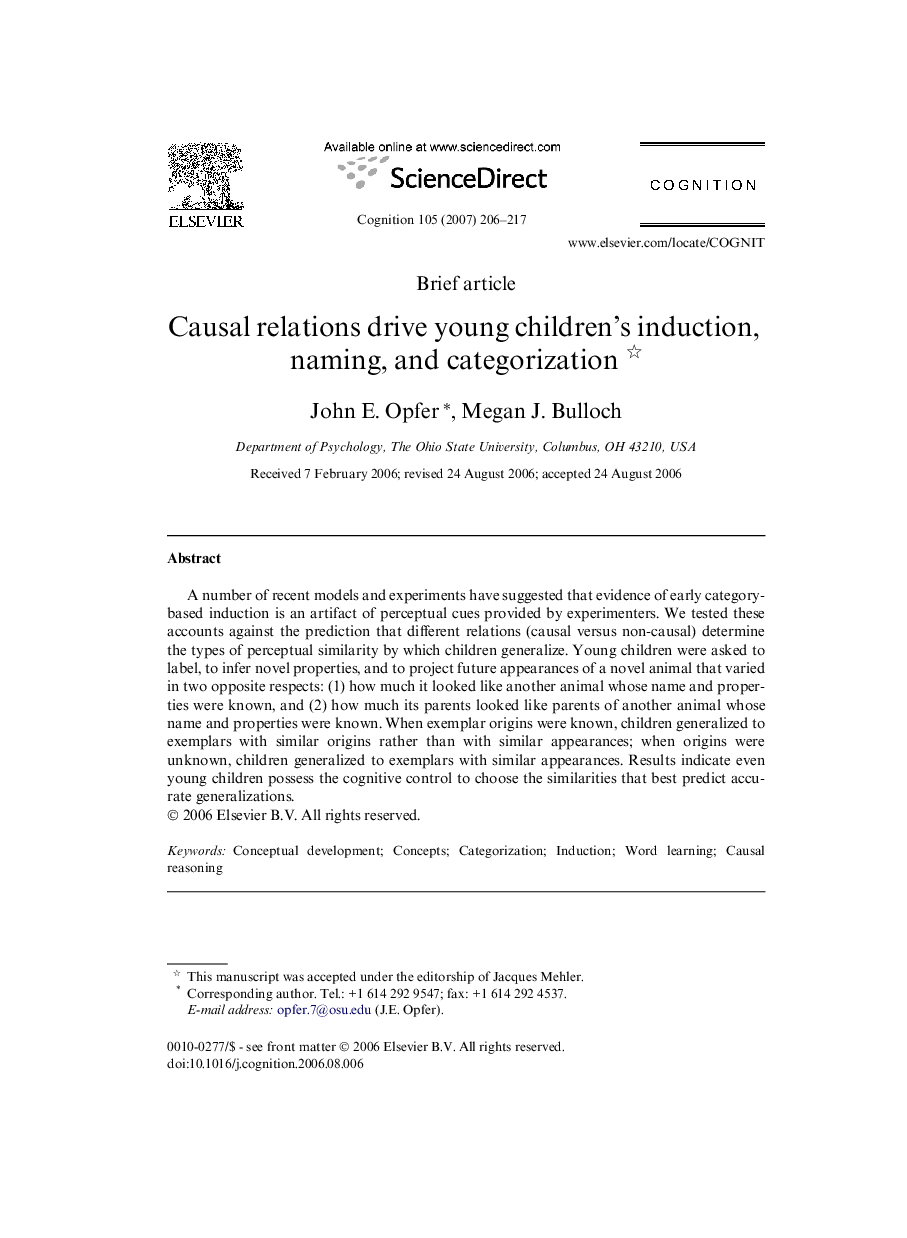| Article ID | Journal | Published Year | Pages | File Type |
|---|---|---|---|---|
| 926845 | Cognition | 2007 | 12 Pages |
A number of recent models and experiments have suggested that evidence of early category-based induction is an artifact of perceptual cues provided by experimenters. We tested these accounts against the prediction that different relations (causal versus non-causal) determine the types of perceptual similarity by which children generalize. Young children were asked to label, to infer novel properties, and to project future appearances of a novel animal that varied in two opposite respects: (1) how much it looked like another animal whose name and properties were known, and (2) how much its parents looked like parents of another animal whose name and properties were known. When exemplar origins were known, children generalized to exemplars with similar origins rather than with similar appearances; when origins were unknown, children generalized to exemplars with similar appearances. Results indicate even young children possess the cognitive control to choose the similarities that best predict accurate generalizations.
